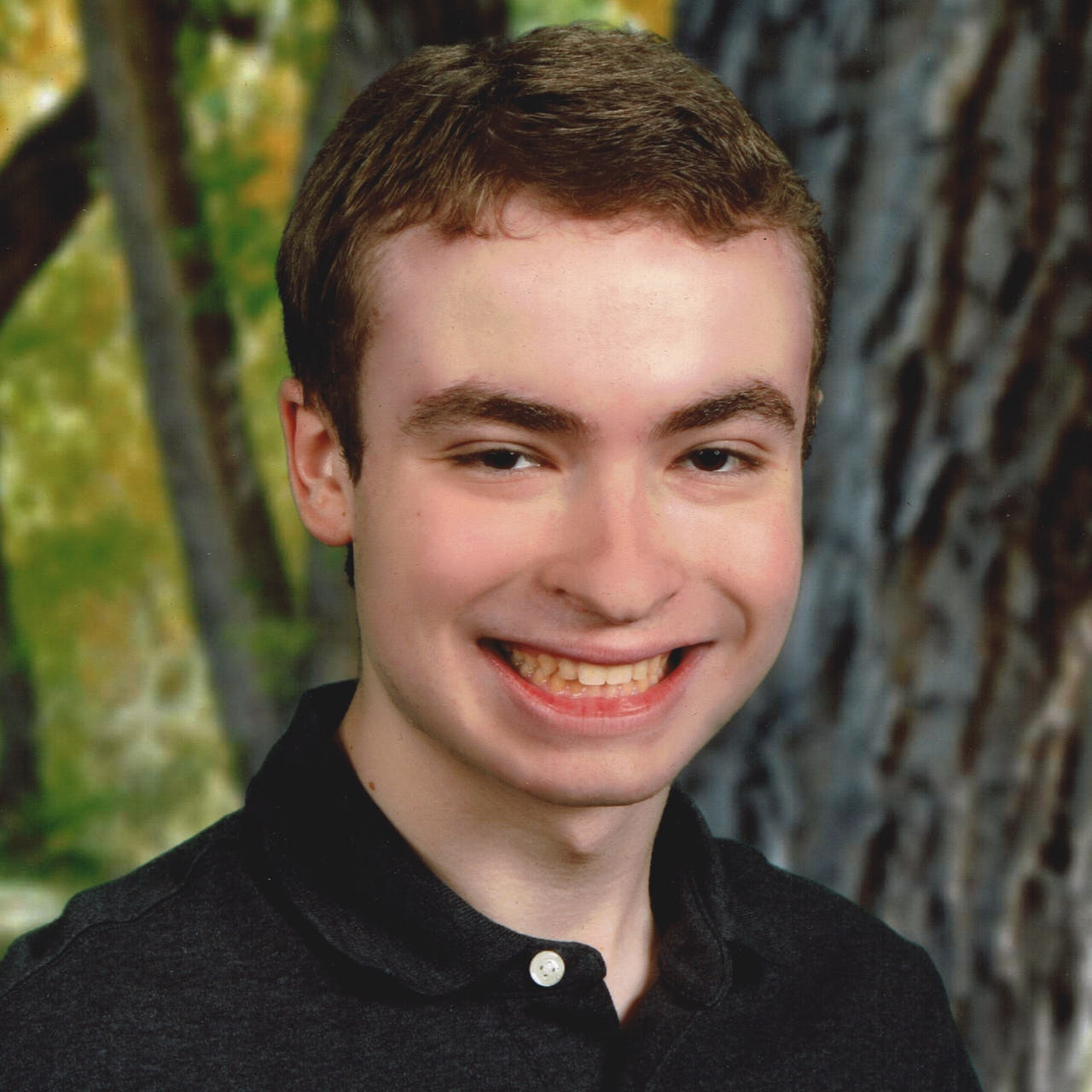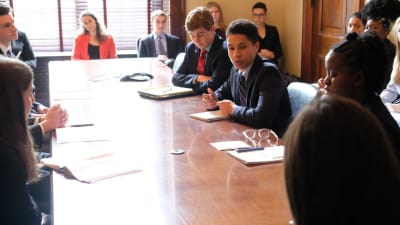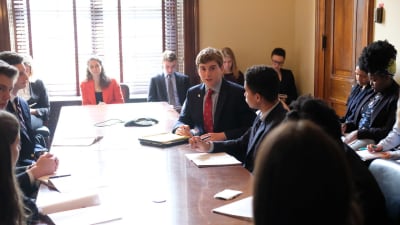Trafficking Syrian Refugees: The Spring 2019 Collaborative Policy Document
Editor’s note: We hope you enjoy Spring 2019 student Josh L.’s second blog post of the semester!
Over the last several weeks, my classmates and I undertook one of the most complex and challenging assignments of an SEGL semester: the Collaborative Policy Document. In the span of about three weeks, we intensely researched a major world problem, wrote under tight deadlines, and presented our ideas to some of the foremost experts in the field. It was one of the most intense experiences we’ve had, and I am so glad that we had the opportunity.
The process began right before Spring Break, when we decided on a topic. First, we spent about half an hour sharing ideas: every person could suggest as many topics as she or he wanted, and each topic was written down on a whiteboard. By the end, we had dozens and dozens of topics: everything ranging from climate change to gentrification to educational inequality. I was really impressed by the number and diversity of topics – I think it represented how we each bring our unique interests and experiences to the table.
Then we went through a number of rounds of approval voting – a technique meant to ensure we chose a topic that would satisfy as many people as possible. Each round, every topic on the board was read out, and people could vote for as many topics as they wanted. The ones that received fewer votes were eliminated. The process repeated several times until we were left with our two finalists: human trafficking and criminal justice. In true SEGL fashion, we had a vigorous debate about the merits of each topic before one final vote, in which human trafficking won by a tight margin.
Our topic selection process still wasn’t finished: human trafficking is a very broad topic and needed narrowing. To do so, a subcommittee of students met with faculty during lunch and decided on the human trafficking of Syrian refugees. We then divided into six subgroups, each charged with researching a different part of the topic.
On our first Wednesday back from Spring Break, we travelled to George Washington University’s Gelman Library, where we spent three hours researching. The scale and scope of the library’s resources was somewhat daunting: between the myriad of online databases and the floors upon floors of books, it initially felt like information overload. We quickly adjusted, though, very much thanks to the help of Mr. David Ettinger, International Affairs and Political Science librarian at GW (and one of only two guest speakers to work with every single SEGL semester in history!). Mr. Ettinger gave us some great tips on how to navigate all that was available, and we left having found some tremendously useful sources.
I really enjoyed that experience, for a couple of reasons. First, it definitely helped me improve my research skills; for example, thanks to some of Mr. Ettinger’s pointers, I think I’m a lot better at choosing where to search (in other words, how to pick the database that is most likely to help me find what I’m looking for). Second, as someone who loves libraries, I loved roaming the halls of the Gelman in the search of a book that I knew would really help.
The next stop in the CPD process was writing “memos,” or short documents in which each group summarized their initial findings and put together draft recommendations. This initially didn’t sound too challenging, until we found out that we had to finish reading our sources, write the memos, and cite all of our sources all in about four hours. It was quite a rush, but I think we all learned a little bit about what it’s like to work under a tight deadline, a skill that will surely serve us well later in life.
Next up was perhaps the most challenging – but my personal favorite – part of the whole project: we presented our memos to a Review Panel, made up of four faculty members playing the roles of important stakeholders in this issue like Secretary of State Mike Pompeo and Sen. Marco Rubio (who is chair of the Senate Foreign Relations Subcommittee on Western Hemisphere and Global Narcotics Affairs, which oversees human trafficking issues). Over the course of about three hours, the panel grilled each group, asking incredibly tough questions and picking over every small detail. We all received some pretty pointed criticism – but we came out of it with some very clear ideas about what we needed to revise and what it’s like to defend your ideas in front of a panel of experts.
As I said, this was my personal favorite part of the whole CPD process, very much because of that challenge: it was rather thrilling to have to anticipate every question the panel asked and then think on our feet to come up with an adequate answer. I also learned a lot about my strengths and weaknesses in those sorts of challenges; for example, I think I now have a better sense of when it makes sense to vigorously defend our work and when to take a step back and just acknowledge criticism. All in all, it was an important moment of personal growth.
Anyway, the next (and close to final) step was writing the actual document that we would be presenting to experts (more on that at the end). Like the memos, we had a pretty tight deadline, and spent a good chunk of time formalizing all of the research we did and refining our recommendations. After getting feedback from the faculty on our first drafts, each group made some concluding edits and submitted our final drafts, capping the end of one of the most unique writing experiences most of us have ever had.
We still weren’t finished with the CPD process, though, as the final stage saw us moving into four new groups, called “polishing committees.” Each committee had a specific role to play in getting the final document together, including combining all of the sections and unifying formatting, writing an executive summary for the whole document, preparing to present to guest experts, and reaching out to other experts in the field to get their feedback. As we were doing this work, we were all filled with a sense of accomplishment for having completed such a multifaceted and important project.
This last week was definitely the most exciting part, though, as we had the opportunity to present the document and its conclusions to two guest experts hugely relevant to this issue. First, on Monday, we went to the office of Sen. Marco Rubio and presented to his legislative expert on foreign policy. Then, on Wednesday, we visited the UNHCR (which is the chief UN body working on worldwide refugee issues) and met with Chris Boian, the senior UNHCR spokesperson in Washington.
Both experts had valuable feedback and advice about where we might want to focus future revisions of the document. Personally, as a member of the group that researched and wrote recommendations to the UN, visiting the UNHCR was something of a surreal experience, as someone who would actually help implement the steps we suggested was able to critique them and give us insights that only someone actually working on these issues could.
With our presentations behind us, our work with the CPD was really and truly done. A SEGL semester never stops, though, and in the coming weeks we will increasingly turn our attention to our Social Venture Projects, where each of us will individually identify a problem we’d like to solve in our home communities and put together a proposal for how we think we can do it. We also have a number of other guest speakers over the next several weeks, in addition to “Networking Night” on Tuesday.
Reflecting back the CPD, though, I am positive that this we will remember this process long after our time in Washington is over. I honed my research skills, developed my ability to write formally, and practiced working under tight deadlines. I know that all of those skills will only get more important as my life continues.
It is also incredibly gratifying to look back upon something that all 24 of us worked so hard on. Like I said, we are all really proud of the document we wrote, and I can say with certainty that each and every one of us is better equipped to learn about and try to solve some of the world’s problems thanks to this experience.
Want to read the document? Click here!













